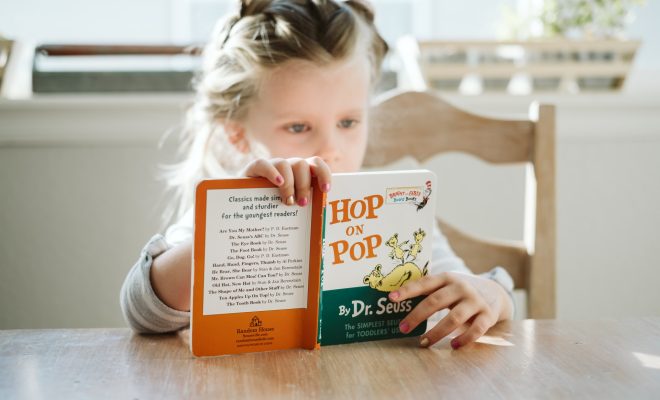Do kids who grow kale eat kale?

Garrett M. Broad, Fordham University
It’s back-to-school time in the United States, and for countless children across the nation, it’s also time to get back into the school garden.
For centuries, educators and philosophers have argued that garden-based learning improves children’s intelligence and boosts their personal health. In recent years, concerns related to childhood obesity and young people’s disconnection from nature have led to a revitalized interest in the topic.
Tens of thousands of American schools have some form of school garden. Many are located on school grounds and others are run by external community partners. Most are connected to the school’s curriculum. For instance, seeds are used in science class to explain plant biology, fruits are used in social studies to teach world geography and the harvest is used in math to explore weights and measures. Some even incorporate food from the garden into the school lunch.
As a researcher and an activist, I’ve spent the better part of the last decade working to promote a healthy, equitable and sustainable food system. Through this process, I have heard bold claims made about the power of garden-based learning to meet these challenges.
Given the enthusiasm that surrounds garden-based learning today, it’s worth taking stock of their overall impacts: Do school gardens actually improve the education and health of young people?
Promoting school gardens
School gardens have become a favorite strategy of prominent advocates in the “Good Food Movement.” Both celebrity chef Jamie Oliver and First Lady Michelle Obama have been vocal supporters.

An elementary school garden with six raised beds is meant to help kids learn. U.S. Department of Agriculture
Nonprofit and grassroots groups, who see these gardens as a way to provide fresh produce for the food insecure, have forged partnerships with local schools. Then there are service-based groups, such as FoodCorps, whose members spend one year in a low-income community to help establish gardens and develop other school food initiatives.
Philanthropic organizations like the American Heart Association have also sponsored the construction of hundreds of new school garden plots.
Taken together, upwards of 25 percent of public elementary schools in the United States include some form of garden-based learning. School garden projects are located in every region of the country and serve students of all ages, ethnic backgrounds and socioeconomic classes.
Transforming kids lives through gardens?
Advocates argue that gardening helps kids make healthier eating choices. As the self-proclaimed “Gangsta Gardener” Ron Finley put it in his popular TED Talk,
“If kids grow kale, kids eat kale.”

Does garden-based learning help school kids?UGA College of Ag & Environmental Sciences – OCCS, CC BY-NC
Many proponents go even further, suggesting that garden-based learning can inspire a variety of healthy changes for the whole family, helping to reverse the so-called obesity epidemic.
Others, like Edible Schoolyard founder Alice Waters, argue that experience in the garden can have a transformative impact on a child’s worldview, making sustainability “the lens through which they see the world.”
Sure, gardens can help
There is plenty of anecdotal evidence to suggest that garden-based learning does yield educational, nutritional, ecological and social benefits.
For example, several published studies have shown that garden-based learning can increase students’ science knowledge and healthy food behaviors. Other research has shown that garden-based learning can help students better identify different types of vegetables as well as lead to more favorable opinions on eating vegetables.
In general, qualitative case studies of garden-based learning have been encouraging, providing narratives of life-changing experiences for children and teachers alike.
However, when it comes to actually increasing the amount of fresh foods eaten by young people, improving their health outcomes or shaping their overall environmental attitudes, quantitative results have tended to show modest gains at best. Some of the most highly developed school garden programs have been able to increase student vegetable consumption by about a serving per day. But the research has not been able to show whether these gains are maintained over time.
A lack of definitive evidence has led some critics to argue that school gardens are simply not worth the time and investment, especially for lower-income students who could be concentrating on more traditional college prep studies.
The social critic Caitlin Flanagan has gone so far as to say that garden programs are a distraction that could create a “permanent, uneducated underclass.”
There are no magic carrots
There is no doubt that the power of garden-based learning is sometimes overstated.
Particularly when describing garden projects in low-income neighborhoods and communities of color, popular narratives imply that a child’s time in the garden will rescue her from a life of poverty and chronic disease.
I call this the “magic carrot” approach to garden-based learning. But as we all know, there are no magic carrots growing in the school garden.
Gardens alone will not eliminate health disparities, close the educational achievement gap, fix unemployment or solve environmental injustice.
When is a garden successful?
For gardens to effectively promote learning and health, they must be supported and reinforced by the community as a whole. Surveys of school garden practitioners show that garden programs have serious potential to enhance school and neighborhood life – but only if certain conditions are met.
Notably, school gardens are most successful when they are not held afloat by a single dedicated teacher. Instead, multiple involved stakeholders can ensure that a garden doesn’t dry up after only a season or two.

If kids grow kale, do they eat it? U.S. Department of Agriculture, CC BY
For example, participation from administrators, families and neighborhood partners can turn a school garden into a dynamic and sustainable community hub.
Many experienced practitioners have also shown that garden-based learning is more powerful when its curriculum reflects the cultural backgrounds of the young people it serves. When children of Mexican descent grow indigenous varieties of corn, or when African-American youth cultivate collard greens, the process of growing food can become a process of self-discovery and cultural celebration.
In other words, if kids grow kale, they might eat kale, but only if kale is available in their neighborhood, if their family can afford to buy kale and if they think eating kale is relevant to their culture and lifestyle.
Creating valuable green space
As my own research has highlighted, there are organizations and schools across the country that incorporate garden-based learning into broader movements for social, environmental and food justice.
These groups recognize that school gardens alone will not magically fix the problems our nation faces. But as part of a long-term movement to improve community health, school gardens can provide a platform for experiential education, create valuable green space and foster a sense of empowerment in the minds and bodies of young Americans.
![]()
Garrett M. Broad, Assistant Professor of Communication and Media Studies, Fordham University
This article was originally published on The Conversation. Read the original article.







